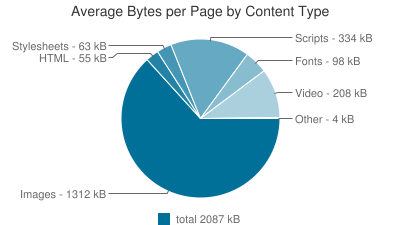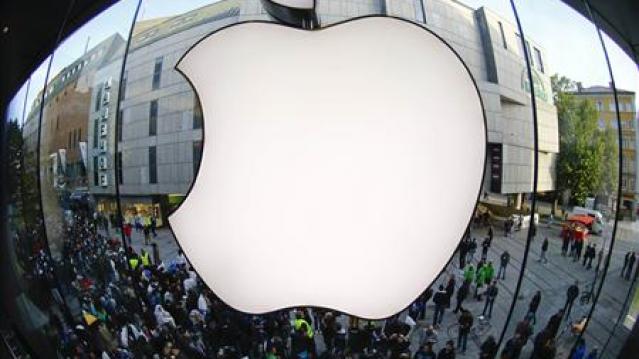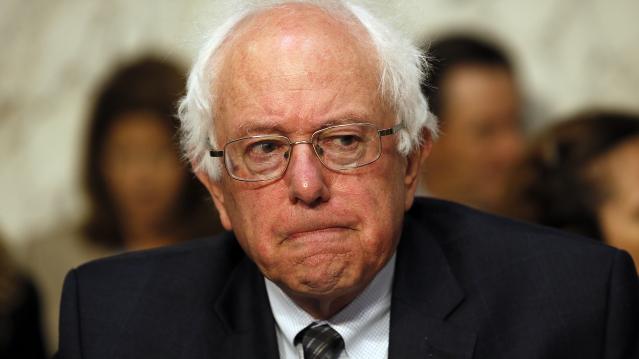5 Cities with the Most Credit Card Debt
Why is the Lone Star State racking up so much debt? Its two largest cities—Dallas and Houston/Fort Worth make the list of the cities with the most credit card debt, and San Antonio comes in as No. 1.
The new study from CreditCards.com used credit report data from Experian to compare the average credit card debt in the 25 largest U.S. metro areas with each area’s median income. It assumed that 15 percent of a person's monthly income would be spent on paying down credit card debt.
The analysis claims it would take San Antonio residents with median incomes of $27,491 a full 16 months to pay off an average of $4,880, making monthly payments of $344 a month. By comparison, a resident of San Francisco making $42,613 a year would pay off $4,393 in credit card debt with nine monthly payments of $533 per month.
The cities with the highest credit card debt burdens were:
- San Antonio
- Dallas/Fort Worth
- Atlanta
- Miami/Fort Lauderdale
- Houston
Related: 5 Reasons to Pay Off Your Credit Card Debt Now
The metro areas with the highest debt don’t necessarily have the highest debt burdens when adjusted for income. For example, Washington, D.C. has the nation’s highest average credit card debt at $5,046, but since it also has the highest median income in the nation, its debt burden is lower. By applying 15 percent of their paychecks, residents can pay off that debt in 10 months.
The cities with the lowest credit card debt burdens were:
- New York City
- Minneapolis/St. Paul
- Washington, D.C.
- Boston
- San Francisco/Oakland/San Jose
Matt Schulz, senior industry analyst at CreditCards.com, points out that there isn’t much difference between the city with the highest credit card debt, Washington, D.C. ($5,046), and the city with the lowest credit card debt, the Riverside-San Bernardino area ($4,137), but there is a big difference in income. A higher income means that debts can be paid off more quickly. “It really is all about earnings,” Schulz says. “People are using their credit cards whether they live in the biggest city in the country or they live in the 25th biggest city in the country.”
While most folks won’t be able to increase their income that dramatically, there are still steps they can take to make sure they’re tackling their credit card debt in the most effective way possible.
Related: How to Defuse Exploding Consumer Credit Debt
His advice to consumers? “Absolutely, positively pay more than the minimum on your credit card balance every month.” And the next best thing? “If you can’t pay the full balance, then you have to pay off more than the minimum.”
Schulz also recommends calling the credit card issuer and asking if you can get better terms. “It’s certainly worth a call,” says Schulz. “We did a study last year that showed that 65 percent of people who asked for a lower interest rate got a lower APR.” The same study said that 86 percent of people who asked for a waiver of a late payment fee were successful in getting the charge removed.
Top Reads from The Fiscal Times:
- The Next Debt Crisis Could Be Much Worse than in 2013, GAO Warns
- The New Generation of ‘Genuinely Creepy’ Electronic Devices
- 9 Social Security Tips You Need to Know Right Now
It’s Not Just in Your Head, the Web Is Slowing Down

It’s not your imagination, and it’s not because AT&T — and possibly others — is purposefully cutting speeds to unlimited data plan users. The Internet is slowing down. The reason: Websites are growing in size, causing slower load times.
The average website is now 2.1 MB in size, compared to 1.5 MB two years ago, according to HTTP Archive, an Internet data measurement company. Multiple reasons can explain this increase in size.
Sites have been adding more content in an effort to drum up traffic, such as videos, engaging images, interactive plug-ins (comments and feeds) and other code and script-heavy features. Websites are becoming more and more technically advanced, and other sites have to keep adding features to stay competitive.
To keep up with the rapidly increasing number of users accessing sites on various platforms, developers are offering more versions of websites as well as apps to accommodate all devices, including smartphones, watches, tablets, and other gadgets. All of these versions require additional code, ultimately adding to the weight of a given website.
Then there are the advertisers who want to get the user’s attention by creating dramatic displays for their products that consume even more bandwidth.
Websites also want to know who is visiting their pages, both welcome and unwelcome visitors. New tools that track and analyze visitors have increased in popularity, as well as stronger encryption technology to add more security. These security measures and trackers require more code, again slowing load times.

Unfortunately for websites trying to keep up with the times, Google has just introduced a new ‘Slow to Load’ warning sign in mobile search results. Since mobile searches account for more than half of the total Google searches in 10 countries, Google wants to enhance user experience for those on their mobile platform.
Although the weight of a website isn’t all that contributes to slow loading, it’s a major factor. Other reasons include users overusing data, a poor connection, or a high level of traffic in the mobile network.
Google also changed its algorithm in April, so now ‘mobile friendly’ sites are ranked higher on search results, while those that fail to meet its criteria are ranked lower.
Although the internet is only slowing by a matter of seconds, it’s still slowing down. All the more reason for a user to become frustrated with a page that’s taking a couple extra seconds to load and go to a competitor’s site.
Taylor Swift Gets Apple Music to Pay Up

On Sunday morning, Taylor Swift took Apple to task for the royalty agreement on its news music streaming service. Her open letter on Tumblr, titled “To Apple, Love Taylor,” said, “I’m sure you are aware that Apple Music will be offering a free 3 month trial to anyone who signs up for the service. I’m not sure you know that Apple Music will not be paying writers, producers, or artists for those three months. I find it to be shocking, disappointing and completely unlike this historically progressive and generous company.”
Related Link: How the Video Game Industry Is Failing Its Fans
“Three months is a long time to go unpaid, and it is unfair to ask anyone to work for nothing,” the pop singer argued on the behalf of music-makers everywhere, many of whom had voiced their discontent with the royalty policy. She concluded her letter saying, “We don’t ask you for free iPhones. Please don’t ask us to provide you with our music for no compensation.”
It was a sentiment shared by many independent music artists and producers. Just a few weeks earlier, the American Association for Independent Music had chimed in, “Since a sizable percentage of Apple’s most voracious music consumers are likely to initiate their free trials at launch, we are struggling to understand why rights holders would authorize their content on the service before October 1st.”
It took less than 24 hours for the “historically progressive and generous company” to respond via Twitter, and it didn’t wait until morning to make its announcement. Eddy Cue, Apple’s senior vice president of Internet Software and Services, personally called Swift to deliver the news before tweeting at 11:29 p.m., “#AppleMusic will pay artists for streaming, even during customers’ free trial period.”
Cue followed up with a feel-good response a minute later: “We hear you @taylorswift13 and indie artists. Love, Apple.” Later, Cue said that the company will pay artists on a per stream basis during the free trial period, although Cue declined to say what the rate would be. Once the free introductory period is over, Apple Music will pay music owners 71.5 percent of Apple Music’s overall subscription revenue in the United States.
Swift tweeted her response and addressed it to her fans and supporters: “I am elated and relieved. Thank you for your words of support today. They listened to us.”
Related Link: Apple Muscles Into Streaming Music Market
Swift’s crusade on social media showed the increasing weight that collective opinions on Twitter, Instagram and Facebook can have to force a change in corporate policy and direction. In a comic echo of that power, BuzzFeed promptly put together a list of 18 more issues Swift could fix through the power of social media, ranging from the battery life of iPhones to the size of Pringles cans.
Apple Music is launching on June 30, offering users a free, three-month subscription period. After that, the service will charge $9.99 a month for individuals and $14.99 a month for families with up to six members.
Most Americans Wouldn’t Vote for a Socialist President

Memo to Sen. Bernie Sanders:
Americans by overwhelming numbers say they would vote for a qualified presidential candidate nominated by their party who is Catholic, a woman, black, Hispanic or Jewish.
They say they would be somewhat less inclined to support a Mormon, a gay or lesbian, an evangelical Christian or Muslim for president, according to a new Gallup Poll released Monday. Yet more than half of those Americans surveyed said they would be accepting of anyone from this group who managed to garner their party’s presidential nomination. Even a qualified atheist would be acceptable to 58 percent of those questioned.
But only 47 percent said they could vote for a socialist for president. Fifty percent said they would absolutely not.
Related: Where Hillary Clinton, Bernie Sanders and Martin O’Malley Stand on the Issues
Sanders, 73, an independent who is challenging Hillary Clinton for the Democratic nomination, is the only Jewish candidate in the race. And while many wrote him off early on as a fringe candidate with limited appeal, Sanders has subsequently generated considerable buzz among liberals and progressives, and has made respectable showings in some of the early polling, including in New Hampshire.
With his ringing anti-Wall Street populist message, Sanders is tapping into the Democratic Party’s progressive wing – including some who had hoped at one time that Sen. Elizabeth Warren (D-MA) might change her mind and enter the race. However, the former University of Chicago student radical and self-described democratic socialist, supports proposals similar to those of mainstream social democratic governments in Europe, particularly those of Scandinavia.
Five of the declared candidates for president are Catholics – including Republicans Jeb Bush, George Pataki, Marco Rubio and Rick Santorum, and Democrat Martin O'Malley. Two are women -- Clinton and Republican Carly Fiorina. Republican Ben Carson is the only black candidate in the race, while two candidates are Hispanic -- Republicans Rubio and Ted Cruz.
Here are Gallup’s findings:

The Hidden Costs of Home Ownership: $6,000 a Year

Most new homeowners are prepared to pay their mortgages, but they may not be ready for other unavoidable costs that can amount to thousands of dollars every year.
The average homeowner shelled out $6,042 last year in homeowners insurance, property taxes, and utilities, according to a new report from Zillow. The average costs varied by location, with Boston homeowners spending the most ($9,413) and homeowners in Phoenix spending the least ($4,513).
“Home buyers too often fixate on the sticker price or monthly mortgage payment on a house, and don’t budget for the other expenses associated with ownership -- which can add up quickly,” Zillow spokeswoman Amy Bohutinsky said in a statement.
Related: How to Decide if You Should Rent or Buy a Home
The maintenance costs included in the report included things like lawn care and carpet cleaning.
The country’s homeownership rate fell to 63.7 percent in the first quarter, the lowest level since 1989. The rate peaked at 69.2 percent in the fourth quarter of 2004, right before the housing bubble burst.
As rents in many cities continue to skyrocket, however, homeownership may be becoming more appealing. However, in addition to hidden homeownership costs, new buyers should also consider the opportunity costs of potential earnings if buyers had invested their down payment. The New York Times has a handy calculator that incorporates these and other factors to help weigh whether it makes more sense to rent or buy.
Nearly two-thirds of consumers say that home ownership is a “dream come true” and an accomplishment to be proud of, according to a survey released last week by Wells Fargo.
Here’s How Much Boomers Are Giving Their Kids
Money has always tended to flow from parents or grandparents to children and grandchildren, whether it’s as outright gifts, help with living expenses or paying for things like school. But the pace of that inter-generational transfer of wealth has picked up in recent years — and it could be threatening the retirement prospects of some baby boomers, according to a new report from the Employee Benefit Research Institute.
The report finds that the number of cash transfers going from older households to younger family members increased from 1998 to 2010. High-income households are more likely to provide support to their adult children, but middle- and low-income families are also providing cash to younger family members. Overall, from 2008 to 2010, households of adults aged 50 to 64 gave an average of $8,350 to younger family members, and households age 85 and older gave $4,787 to younger family members.
“For older households, cash transfers can reduce their retirement assets, raising concerns about retirement security, particularly for low-income groups,” EBRI research associate Sudipto Banerjee said in a statement.
Related: Sandwich Generation Squeezed Once Again
In just 5 percent of families, wealth is passed from the younger generation to the older, and the amounts are far smaller. During the same period, households age 85 and older received an average of $359 from those in younger generations.
The EBRI numbers confirm a trend highlighted in other recent reports. A 2013 Pew study found that about half of adults ages 40 to 59 have provided some financial support to at least one grown child in the past year, with more than a quarter of them providing the primary support.
Obviously, the economic climate of recent years may be a big reason for the increased cash flowing from parents to their grown children. More than half of parents of millennials think that it is harder for today’s young adults to live within their means than it was for them, according to an April Bank of America survey.
